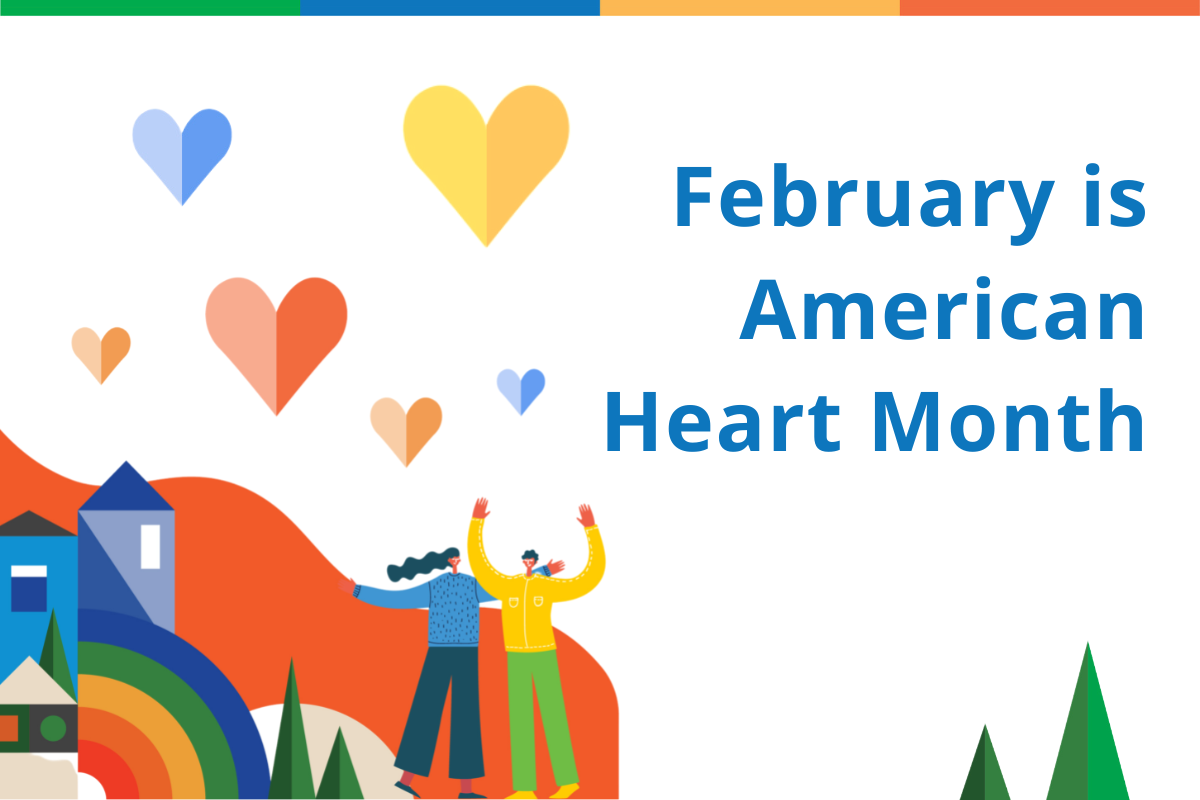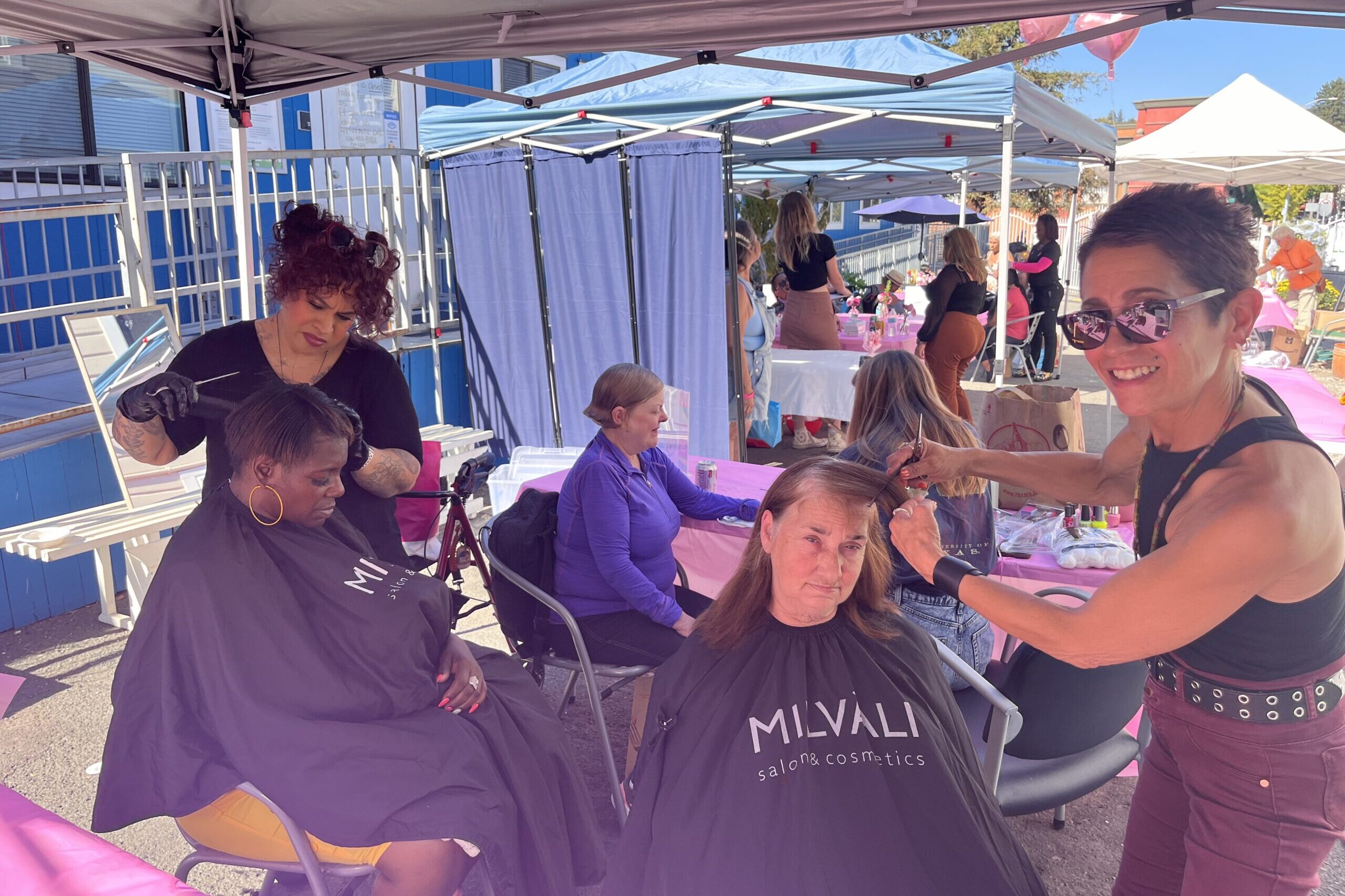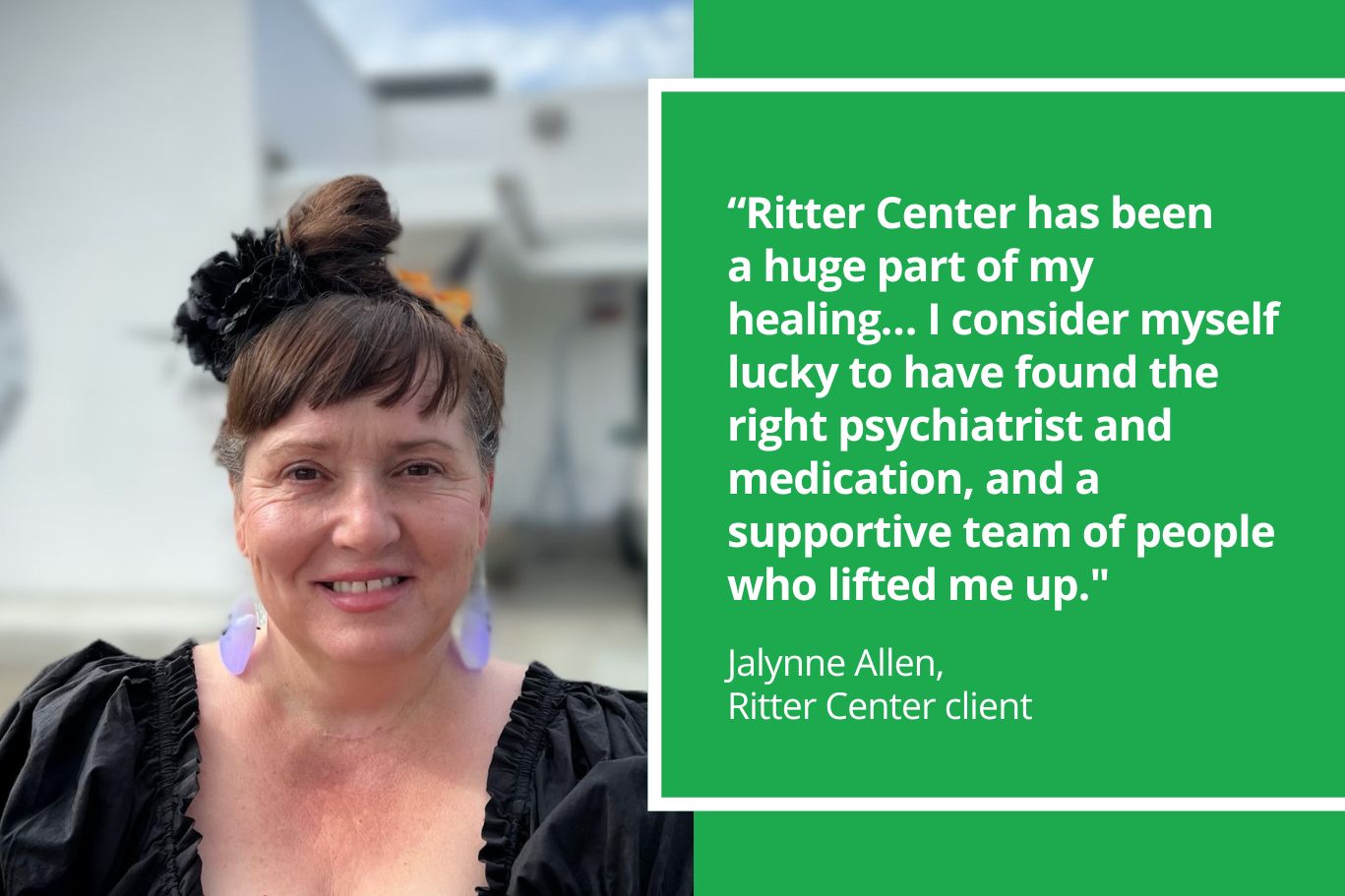
AMERICAN HEART MONTH
February is American Heart Month – a federally designated event that encourages Americans to focus on their heart health and get their families, friends and communities involved. President Lyndon B. Johnson proclaimed the first American Heart Month in February 1964 via Proclamation 3566 on Dec. 30, 1963.
It is no surprise that living on the streets is extremely stressful. But did you know that there is a link to cardiovascular disease (CVD) and homelessness? A medical journal article published a few years ago lays out just how cardiovascular disease is a major cause of death among people experiencing homelessness, at rates that exceed those in individuals who are housed.
A complex set of factors contributes to this disparity: a high prevalence of cigarette smoking; suboptimal control of traditional cardiovascular disease risk factors like chronic stress, depression, heavy alcohol use, and cocaine use; and other factors may confer additional risk for adverse cardiovascular disease outcomes.
Also, poor health care access and logistical challenges to cardiac testing may lead to delays in diagnosis. Management of established cardiovascular disease may be further challenged by barriers to medication adherence, communication, and timely follow-up. (Journal of the American College of Cardiology Volume 71 Issue 22 June 2018 Cardiovascular Disease and Homelessness).
Currently, Ritter Center has a number of patients in our care that have cardiovascular disease and reflect some of the challenges laid out in the medical journal article. It is challenging for our patients to manage hypertension, diabetes and diet with the difficulties they face in their lives. We work to educate our patients about what can happen and with a special focus on raising awareness about the symptoms of heart failure and heart attacks.
One of our patients is very young and was suffering from stress induced cardiomyopathy also known as broken-heart syndrome or Takotsubo cardiomyopathy. Typically, more than 90% of reported cases are in women ages 58-70.
Our patient had shortness of breath and an angiography was performed on her at the hospital to see if there was a blockage or a narrowing of the arteries. If a blockage is not the cause, then it’s actually constriction of the arteries because of stress. This patient originally presented at Ritter Center with shortness of breath and swelling of her feet. However, now, she is in a much better place. After 3 months on heart medications, the functioning of her heart went back to normal after having been reduced to almost half.
Another patient at Ritter Center presented with a swelling of legs and shortness of breath. This particular patient had both an irregular and fast heartbeat. The patient’s atrial fibrillation led her to being referred to care by a cardiologist so she could receive an echocardiogram and other specialized follow up care protocols and procedures.
Ritter Center is here to help. If you feel an irregular heartbeat, have high blood pressure, high cholesterol, blood sugar issues, abuse substances and/or are under too much stress, you can be at risk for heart disease.
We are here to help the community. Our street van team is out and about ready to support with screenings for blood pressure and diabetes. No one is alone in this journey.
Learn more about our Street Medicine program here.
If you want to establish primary care and you have Medi-Cal, Medicare, are uninsured or undocumented, please call us to talk about registering as a Ritter Center patient: (415) 457-8182.
_________________________________________
More Resources:
Read the White House’s Statement on 2023’s 57th American Heart Month
Million Hearts® collaborated with the CDC Foundation to develop the “Live to the Beat” campaign, which aims to reduce the risk of cardiovascular disease (CVD) among Black adults ages 35 to 54. The campaign encourages people to take small steps to address key risk factors like hypertension, high cholesterol, and high blood sugar. Learn more: https://millionhearts.hhs.gov/partners-progress/partners/live-beat-campaign-toolkit.html
National Heart, Blood and Lung Institute: https://www.nhlbi.nih.gov/education/american-heart-month
Live to the Beat: Stories about heart health: https://www.livetothebeat.org




